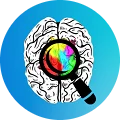Understanding the Mind Brain Relation: Theories, History, and the Significance of Consciousness
Introduction to Mind Brain Relation The intricate relationship between the mind and brain has been a cornerstone of philosophical and scientific inquiry for centuries. This interplay between subjective mental experiences
